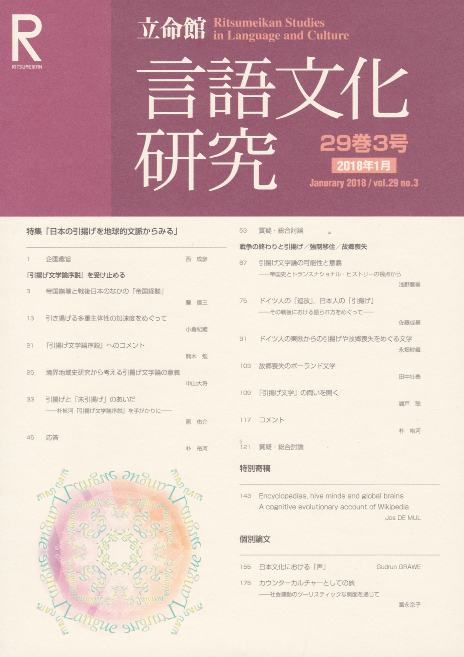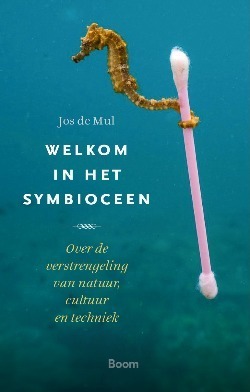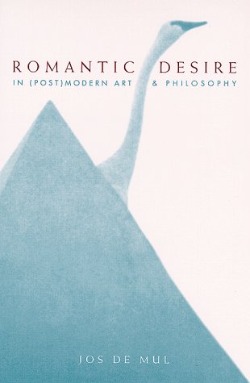Jos de Mul. Encyclopedias, hive minds and global brains A cognitive evolutionary account of Wikipedia. 立命館言語文化研究29巻3号. Ritsumeikan Studies in Language and Culture. Volume 29, no.3 (2018), 143-153.
 Abstract
Abstract
Wikipedia, the crowd-sourced, hypermedial encyclopedia, available in more than 290 languages and consisting of no less than 40 million lemmas, is often hailed as a successful example of the ʻwisdom of the crowdsʼ. However, critics not only point at the lack of accuracy and reliability, uneven coverage of topics, and the poor quality of writing, but also at the under-representation of women and non-white ethnicities. Moreover, some critics regard Wikipedia as an example of the development of a hive mind, as we find it in social insects, whose ʻmindʼ rather than being a property of individuals is a ʻsocial phenomenonʼ, as it has to be located in the colony rather than in the individual bees. In this article an attempt is made to throw some light on this controversy by analyzing Wikipedia from the perspective of the cognitive evolution of mankind. Connecting to Origins of the Modern Mind(1991) of neuropsychologist Merlin Donald, in which three stages in the cognitive evolution - characterized by a mimetic, an linguistic, and an external symbolic cognition respectively - are distinguished, it is argued that the development of the internet, and crowd-sourced projects like Wikipedia in particular, can be understood as a fourth, computer- mediated form of cognition. If we survey the cognitive evolution of hominids and the role played in this evolution by cultural and technical artefacts like writing, printing press, computers, and internet, we witness a process of increasing integration of individual minds. With outsourcing and virtualization of the products and processes of thinking to external memories, and the fast development of implanted computer interfaces, we appear to be at the edge of the materialization of the hive mind in a ʻglobal brainʼ. The article ends with some speculative predictions about the future of human cognition.
Keywords: encyclopedias, Wikipedia, wisdom of the crowds, cognitive evolution, hive mind, global brain








